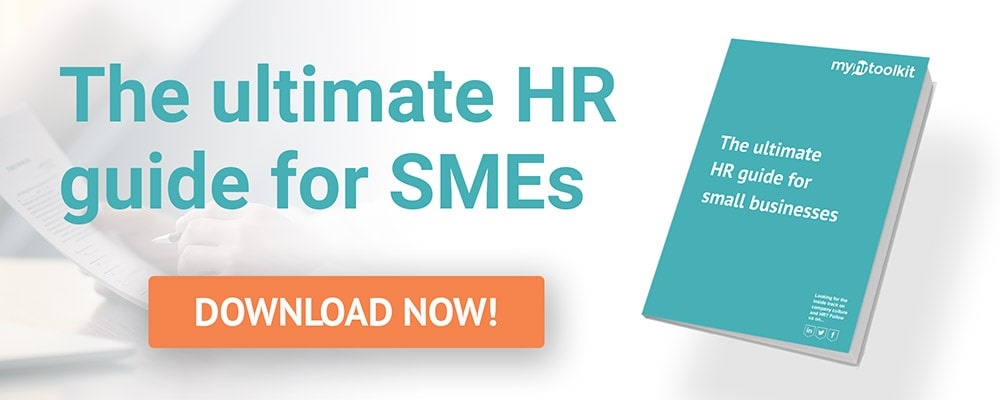How can an SME improve their HR functions? HR expert Gemma Dale explores the core HR functions and what small businesses can do to improve them, from understanding the employee lifecycle to using people data to inform business decisions.
What is effective Human Resources? There is no single answer to this question. HR encompasses so many different functions and processes. From placing a recruitment advertisement to issuing a P45 to a leaver, HR is integral to the employee experience.
Exactly what HR does, and how they do it, varies from organisation to organisation. From huge departments with multiple specialisms to the standalone practitioner in an SME, HR typically includes many of the same core functions: recruitment, learning and development, reward and recognition, and performance management.
HR for SMEs

Good HR, aligned to an organisation’s aims and objectives, can make a significant contribution to overall organisational success. Getting it right, improving it and updating approaches as thinking and good practice moves on is critical, for organisations of all sizes.
Ensuring effective Human Resources in an SME can bring its particular challenges. It’s unlikely that there will be the big people budgets or resources that larger organisations have. There might not be the same level of understanding of the role of HR or where it can add value, and SME HR practitioners need to be masters of all of the people trades. There’s also the decision about when the business actually needs its first HR practitioner, whether an internal HR manager or external HR consultant.
5 steps to improving HR

If a SME wants to improve their core HR function or processes, where should they begin?
1. Start with strategy
Effective HR functions are aligned to the goals and objectives of the organisation. The starting point, therefore, is for the business leaders to think about what they want specifically from their HR function. What matters most?
Maybe it’s about great recruitment or developing capable people managers. Or is upskilling the workforce or handling tricky employee relations issues the most pressing current need? Business goals should determine the HR goals and in turn inform decisions about processes, policies, and systems.
2. Examine each stage of the employment lifecycle
As we have already seen, core HR functions include recruitment, training, reward, recognition, and performance management. Each stage of the employee lifecycle should be assessed in order to identify whether it is efficient, effective and delivering on its objectives. Is recruitment activity attracting talented applicants in a timely way? Are policies and procedures up to date and reflecting best practice? Are performance issues being appropriately managed?
Not all of these responsibilities sit entirely with HR; often they are joint activities between the people function and people managers. However, taking each of these HR functions and examining them systematically can help to identify any areas for HR improvement.
3. Measure and monitor
People data matters. It allows the organisation to spot trends, identify areas for improvement and assess the effectiveness of people practices and the HR function itself. Data should also support business decision making. You can find more information in my article on the 5 standard HR reports every small business needs to run smoothly. Ideally every area of the employee lifecycle should be monitored and have Key Performance Indicators (KPIs) in place.
4. Listen to your employees
All organisations should find a way to listen regularly to their employees about their experience of working for them. There are many ways to do this. From formal HR surveys to focus groups, taking feedback will also help to establish levels of employee engagement, identify areas of frustration or risk, and make changes or improvements where they needed. What do people think about the organisation? Are they proud to work there? Are they getting the training that they need and do they feel that they are being rewarded fairly? What do they think of any changes that have taken place?
5. Don’t do HR gimmicks or follow the crowd
Good HR is unique to the organisation. It is all too easy to look at what works in other places and see them as a potential solution to similar HR challenges, but not everything translates or transfers well. Google are famed, for example, for having a slide in the office. Whilst this might work in their culture and for their particular context, it might not fit in the average UK SME. HR processes and functions work best when they align with culture and people’s needs. All HR initiatives or improvements should be evidence-based and reflect the needs of the business and its people.
Are you looking to make HR work more effectively for your small business? Download our Ultimate HR Guide for SMEs, written by a CIPD qualified HR professional:
Final thoughts
Over time, the needs of the organisation and the people that work there will change and evolve, especially if the SME is experiencing growth. The very best HR is agile, capable of understanding these needs and adapting their approach – in every core HR function.
Read more from the myhrtoolkit blog

Written by Gemma Dale
Gemma Dale is an experienced senior HR professional, CIPD Chartered Fellow, HEA Fellow, and a regular speaker and writer on a variety of HR topics. Gemma is the co-author of the book 'Flexible Working' published by Kogan Page in 2020. She is also a lecturer in the Business School at Liverpool John Moores University and runs her own business, The Work Consultancy.


 Holiday Planner
Holiday Planner Absence Management
Absence Management Performance Management
Performance Management Staff Management
Staff Management Document Management
Document Management Reporting
Reporting Health and Safety Management
Health and Safety Management Task Management
Task Management Security Centre
Security Centre Self Service
Self Service Mobile
Mobile




